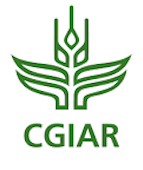
CGIAR System Organization

CGIAR is a global research partnership for a food-secure future. CGIAR science is dedicated to reducing poverty, enhancing food and nutrition security, and improving natural resources and ecosystem services. Its research is carried out by 15 CGIAR centers in close collaboration with hundreds of partners, including national and regional research institutes, civil society organizations, academia, development organizations and the private sector.
Links
Displaying 1 - 20 of 29 articles

Kenya’s smallholder farmers aren’t using antibiotics properly, some are of poor quality and some antibiotics are being found in milk.

Food security experts recommend that rural farmers in Malawi be given access to irrigation systems to free them from reliance on rain, and find ways outside farming to earn an income.

Indonesians are consuming more and more processed foods, including sugary drinks, salty snacks, junk food, and unhealthy fats. These changes take a toll on people’s health, as well as the environment…

Indonesia memiliki potensi pangan 100 jenis karbohidrat, 100 jenis kacang-kacangan, 450 buah, serta 250 jenis sayuran dan jamur.

A functioning market eases pressure on rangelands, lowers animal mortality, and stabilises prices.

Under certain conditions, climate can amplify security risks, with implications for lasting peace.

The internet and smartphones have enabled customers to make more informed choices by using sites where customers share their experiences.

Pemerintah semestinya mendukung relokalisasi sistem pangan agar masyarakat setempat memiliki kuasa mengembangkan sistem pangan sendiri sesuai karakteristik kaum masing-masing.

Bearing the burden of policies on conservation, together with the impact of out-competition by other sectors within the blue economy, has led to increased poverty in fishing communities.

Barriers to independent national decision making in farming need to be challenged if agricultural sustainability is to be developed.

Public participation increased the quality and quantity of some public services, though not in all sectors, and some services were affected more than others.

Improved seeds can alleviate a food security crisis deepened by COVID-19.

The net effect is that the shocks are most severe on poorer, more vulnerable households.

It’s time to redesign food systems that deliver healthy foods, allow farming families to make a good living, and support thriving societies.

Thousands of lives have been saved thanks to an Indian state’s effective disaster-relief planning.

Mengatur dan mengawasi jumlah ikan yang terbuang dan hilang bukanlah perkara mudah.
Namun, kerja keras ini setimpal demi menghemat Rp 104 triliun setiap tahunnya untuk kesejahteraan seluruh rakyat Indonesia.

Regulating fish loss and waste is not easy, but it is worth the effort to save $7 billion every year for the benefit of the Indonesian people.

Cyclone Idai hit poor countries the hardest and shows why disaster resilience is a necessity.

Wetlands are disappearing rapidly - but new data and technologies are revolutionising our knowledge.

There are benefits and downsides to damming rivers.
